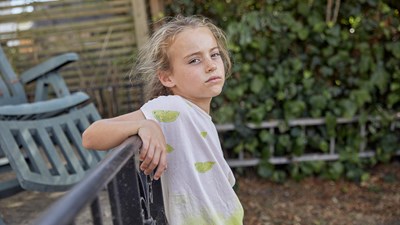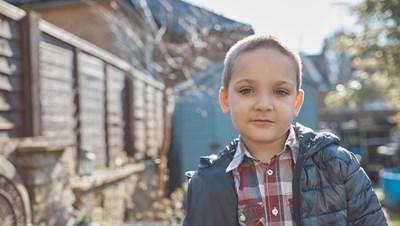About the Whistleblowing Advice Line
The Whistleblowing Advice Line offers free advice and support to professionals with concerns about how child protection issues are being handled in their own or another organisation.
If you think an organisation is putting children at risk, even if you're not certain, call us today to talk through your concerns.
A chat with your partner or a mate about your concerns won’t change anything but a chat with us can change a child’s life.
Whistleblowing Advice Line
Our Whistleblowing Advice Line is available from 8am-8pm Monday to Friday and 9am-6pm at the weekend. However, you can email [email protected] at any time. It’s free and you don’t have to say who you are. If you think a child is in immediate danger, please call the police on 999 straight away.
In addition to our general helpline for anyone who is worried about a child and would like support and advice, we run several dedicated helplines.
The Whistleblowing Advice Line was commissioned by the Home Office. It is a direct response to the recommendation for "a new whistleblowing national portal for child abuse related reports" set out in the Government's Tackling child sexual exploitation report (HM Government, 2015).
The Whistleblowing Advice Line isn't intended to replace any current practices or responsibilities of organisations working with children. We encourage professionals to raise any concerns about a child to their own employer in the first instance.
What is whistleblowing?
Whistleblowing is when someone raises a concern about a dangerous or illegal activity or any wrongdoing within their organisation.
Raising a concern is known as "blowing the whistle" and is a vital process for identifing risks to people's safety.
Sharing information or talking through a concern can be the first step to helping an organisation identify problems and improve their practices.
What happens when you contact us
One of our call handlers will connect you with a trained practitioner. They'll discuss your concerns with you and:
- talk you through the whistleblowing process
- take details of your concern
- explain the protection available to you if you need it
- get relevant agencies and authorities to take action on your concern.
You don’t have to tell us who you are if you don’t want to - you can remain anonymous. If you do give us your name and contact details you can ask us not to share these with other agencies.
When to contact us
If you have any concerns about a child in your workplace you should raise this with your employer or organisational safeguarding lead in the first instance.
You should contact the Whistleblowing Advice Line if:
- your organisation doesn't have clear safeguarding procedures to follow
- you think your concern won't be dealt with properly or may be covered-up
- you've raised a concern but it hasn't been acted upon
- you're worried about being treated unfairly.
You can contact us about an incident that happened in the past, is happening now or you believe may happen in the future.
What the law says about whistleblowing
If you disclose information about wrongdoing the law protects you from being treated unfairly or losing your job.
A disclosure qualifies for protection if you're a worker and you disclose something about an organisation.
A disclosure must be about something that affects the general public, like:
- a criminal offence has been committed, is being committed or is likely to be committed
- an legal obligation has been breached
- there has been a miscarriage of justice
- the health or safety of any individual has been endangered
- the environment has been damaged
- information about any of the above has been concealed.
This is set out in the Public Interest Disclosure Act 1998. The Act applies to England, Scotland and Wales.
We've been a prescribed whistleblowing body for child welfare and protection since 2014 (Department for Business, Innovation and Skills, 2016). This means any worker who has child protection or welfare concerns can make a disclosure to us and we can seek to protect them against unfair treatment at work.
You can find out more about whistleblowing on the GOV.uk website.
Posters and wallet cards
Display these posters in your organisation so professionals know the Whistleblowing Advice Line can provide free advice and support if they're concerned about how child protection issues are being handled.
Posters for specific sectors and professions:
More information and advice
References
-
Department for Business, Innovation and Skills (2016) Blowing the whistle: list of prescribed people and bodies (PDF). London: Department for Business, Innovation and Skills.
-
HM Government (2015) Tackling child sexual exploitation (PDF). London: Cabinet Office.





